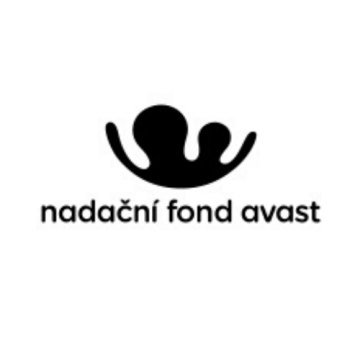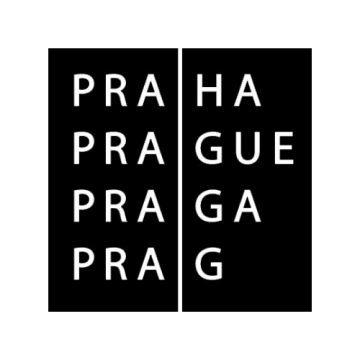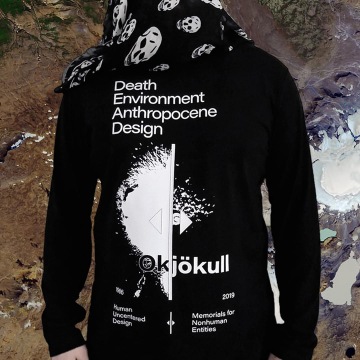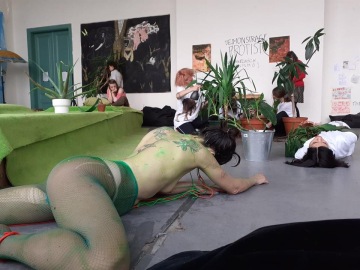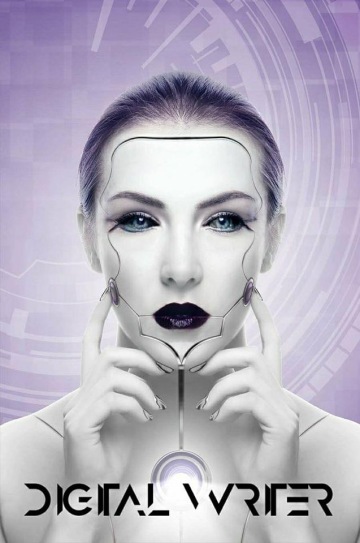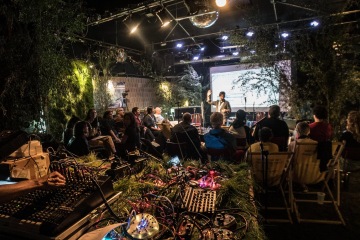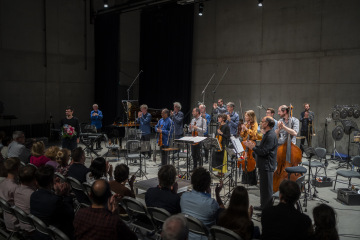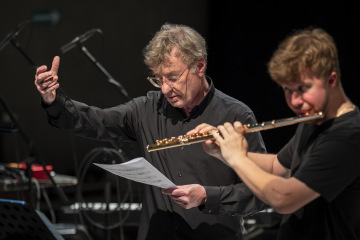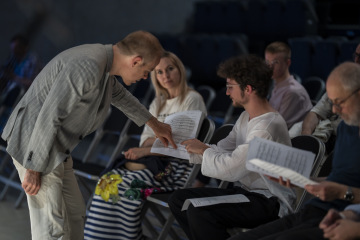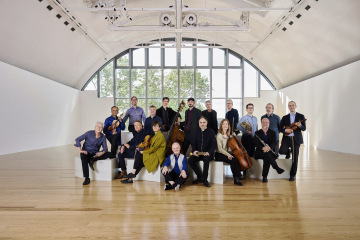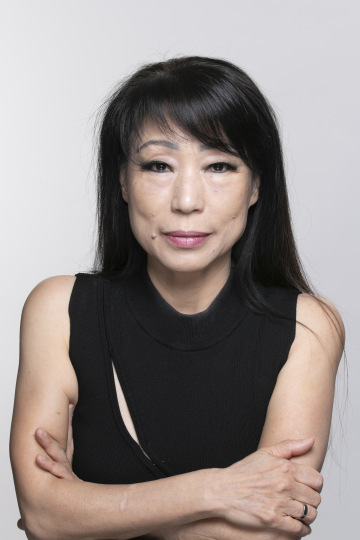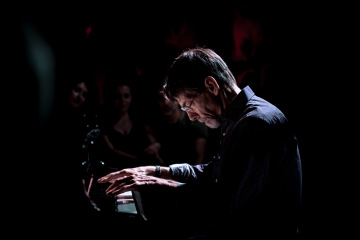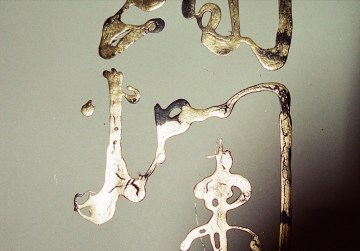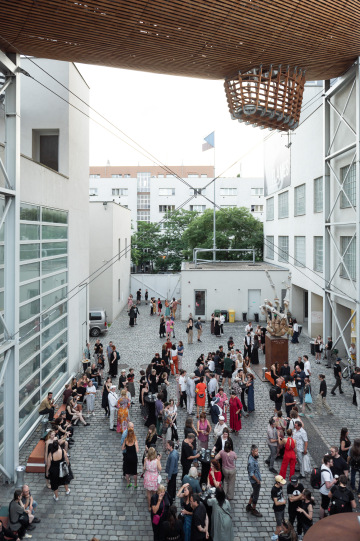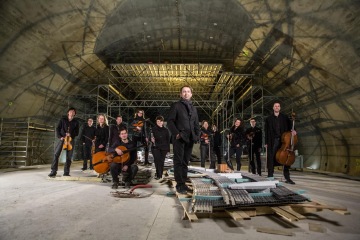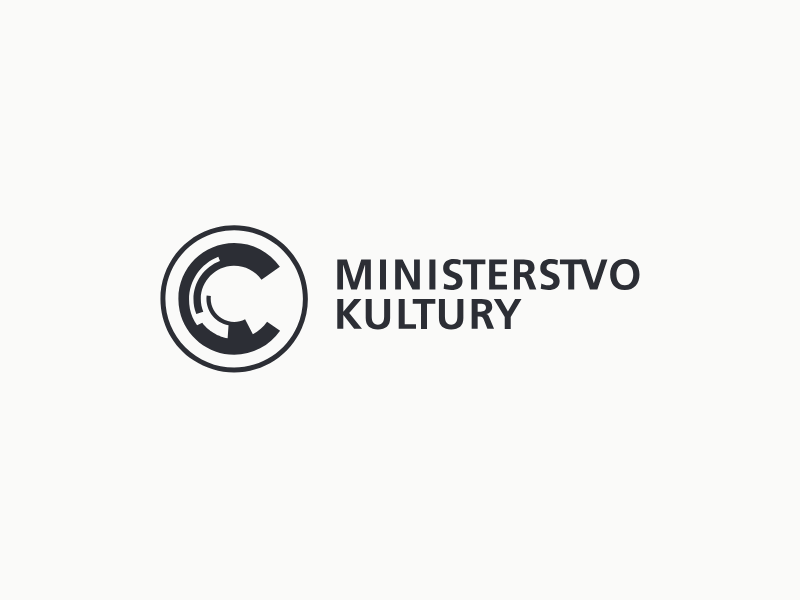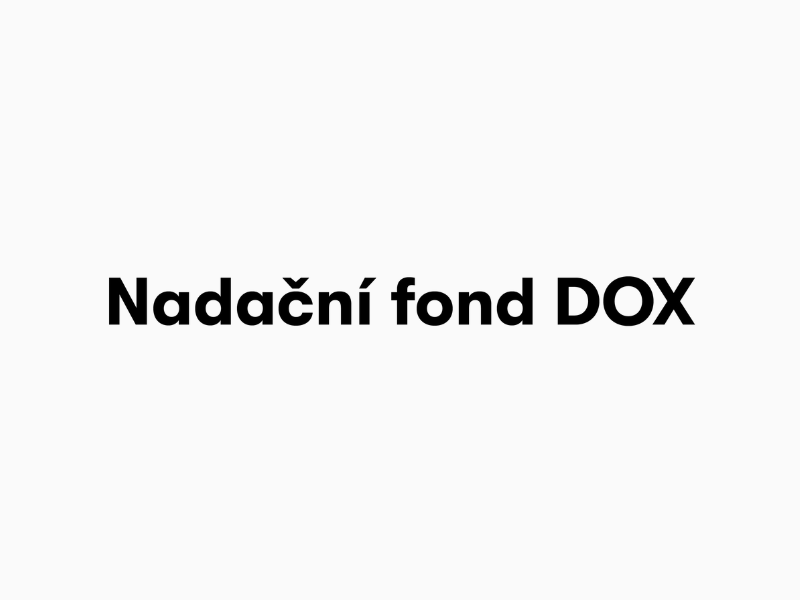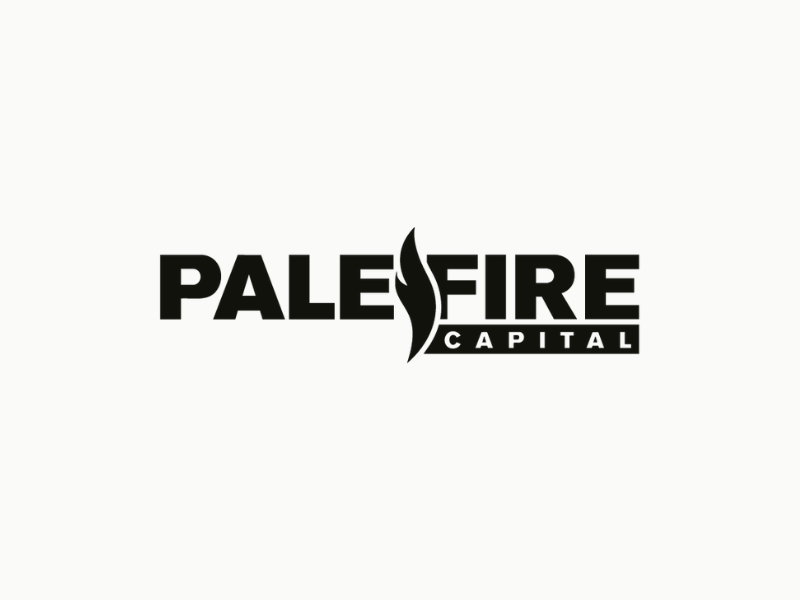Information
The Uroboros Festival will take place online from 13 to 16 May 2020
Four days of online lectures, discussions and performances
Admission to the online festival is free
Registration, program and more information at www.uroboros.design
The theme of the first year of the Uroboros festival: Design in a troubling times.
Our current social ecosystem is spiraling in loops of dark and ominous events, making it challenging to remain optimistic. COVID-19 pandemic and public health crisis, climate emergency, global migration, resurgent nationalism, deepening wealth disparities, white supremacy and patriarchy, university funding scandals and moral bankruptcies fueled by big tech – incessant bad news and predictions of looming catastrophic futures remind us of our collective failure as humankind. In these complex and complicated times, it is difficult to feel that we have any agency to nurture positive change and design anything good.
Such skepticism is further reinforced by the many failures of ‘innovative’ design projects and agendas: from techno-utopian narratives of better futures exhausted by techno-solutionism to the commercial appropriation of critical and speculative design mindsets. Many pages have been spent critiquing such efforts and picking up the naivety, biases, and dangers of designing to make the world a better place. Design is often seen as intrinsically a part or even a cause of our societal problems, intensifying inequalities and accumulating power in the hands of the privileged few. Designerly speculations about desirable futures are dismissed for sitting outside of actual structural problems, predestined to end up filling corporate flipcharts.
While acknowledging such critiques, we can’t afford to accept that ‘designing for better worlds’ is futile and impossible. In the times of looping crises, we can’t fall into the trap of passive skepticism and lethargy. Deeply aware of the privileges and biases hindering our perspectives of what such worlds could and should be, we are calling out the Uroboros: the ancient serpent eating its own tail that aptly captures our current global conditions as well as our attempts at finding productive responses. Rather than aiming to untangle the serpent and solve any of the problems it encircles, we wish to explore and challenge the social, political, technological, and epistemological circumstances scaffolding its pathways. Summoning the Uroboros collectively and carefully, we hope to better understand its dark loopings and engage in productive speculations on how things could actually – not just in principle – be different.
The 2020 Uroboros festival presents participatory works by art/design researchers and practitioners of diverse backgrounds that engage critically, experimentally, and materially with our troubling global conditions, aiming to actuate a positive change.
adA/Optive group (AT), Yin Aiwen & Trojan Horse (NL/FIN), Darina Alster (CZ), Katarína Balažíková (SK), Jana Bernartová (CZ), Kat Braybrooke & Jaz Hee-jeong Choi (UK/AU), DISNOVATION.ORG (FR), Jennifer Cunnigham & Sue Fairburn (CAN/SCT), Denisa Kera (CZ), Enrique Encinas & Rob Mitchell (ES/UK), Eurico Sá Fernandes (PT), House of Common Affairs (GB), Hermetechnics Inc. (SK), Yoav Lifshitz (IL), Dita Malečková & Jan Tyl (CZ), Andrew Gryf Paterson (SCT), Stefan Schaefer (NL), Juli Sikorska (DE), Winnie Soon (HK), Speculative Edu (HR), Jakub Tajovský (CZ), Sjef van Gallen (NL), Danielle Wilde (AU/FR), Zuza Zmatek (SK)
The festival is part of the long-term project #DATAMAZE, which combines the concept of an exhibition that is a work in progress with a workspace and library intended for activities and developing collaboration across areas and topics related to a critical reflection on our existence in the digital environment, and with lecture space.
The festival is curated by the ALTTAB – a Czechoslovak collective of designers, artists, and researchers gathered around a shared interest in the ethical and socio-ecological implications of emerging technologies.
Programme
YIN AIWEN & TROJAN HORSE: Occupying Screen Spaces
14 May 5–7 pm
COVID-19 has put everyone in isolation, in which the digital space becomes the dominant venue that keeps us connected and staying social. However, it is well-known that the social digital spaces we have are poorly designed for meaningful connections, as they are largely designed based on linear, single-user journeys which consider all social encounters as part of the communicative workflow, and aim for efficient exchange of information. In a time when we realize how dependent we are from others and where solidarity and togetherness becomes the utmost important foundation to keep our global society from falling apart, it is urgent and crucial that we begin to confront the isolation by design in the digital space and explore the alternative together, albeit being alone. In this project, we would like to explore the Other (Digital) Space via webcam-based collaborative LARP (Live-Action Role-Play) exercises.
‘Occupying Screen Spaces’ is a screen-based online Live-Action Role-Play departing from the research manifesto “Urbanizing the digital: Call for actions” which perceives the digital environment as if it’s an urban space and opens a different optics for a public interest internet. It’s a collaboration between the collective Trojan Horses (Kaisa Karvinen and Tommi Vasko) and researcher Yin Aiwen from the Centre of Applied Research for Art, Design and Technology in Avans University of Applied Sciences.
ROBOTA - CENTER FOR ADVANCED STUDIES: Antichrist Workshop
14 May 12.30–2.30 pm
As technology is becoming ubiquitous bringing high level complexities, the society and individuals are drowned in the sea of informational lava. Parallel development is happening in the field of machinic autonomies, so more and more aspects of human life are being automated and algorithmically governed. Recent resurrection of interest in Artificial Intelligence after several AI winters, and evident advancement in AI research, Machine learning, blockchain and innovation brought various AI ethics research and policy groups. All these are showing growing concerns with technological entanglement with utopian or dystopian scenarios. The main question of AI development and technological progress can be formulated as this: is the development of technological superstructure inevitable? Is resistance futile? Do we need to develop AI and should we live under it? What is the position of designers and creatives in this race?
The name Antichrist workshop came from views of technology as an apocalyptic Antichrist that governs humanity in the End Times. During the workshop, participants will be introduced to basic ideas concerning technological supremacy, including religious texts, contemporary conspiracy theories, singularists, texts by thinkers like Simondon, Pasquinelli, Zuboff. The goal of the workshop is to envision possible future(s) without some of current technological development or without those that are on horizon.
WINNIE SOON: Queering Vocable Code
15 May 4.30–6.30 pm
The workshop examines the generative, operative, and normativity of code. Through queering code and discussing possible (non)binary logics, participants will queer their voices by performing dynamic statements to intervene a software program and artwork called “Vocable Code”, simulating mathematical chaos and creating a lively and bodily audio literature that explores the performativity of code, subjectivity and language.
Winnie Soon’s artworks and projects have been exhibited and presented internationally at museums, festivals, public libraries, universities and conferences across Europe, Asia and America, including but not limited to ZKM, RMIT Gallery, The Photographers’ Gallery, Transmediale, Electronic Literature Festival, ISEA, Stuttgarter Filmwinter, WRO Media Art Biennale, Roskilde Library, Pulse Art + Technology Festival, FutureEverything Art Exhibition, Ars Electronica, The Wrong – New Digital Art Biennale, Hong Kong Microwave International Media Arts Festival, and among others. In 2019, she has received the Expanded Media Award for Network Culture at Stuttgarter Filmwinter — Festival for Expanded Media, WRO 2019 Media Art Biennale Award and Public Library Prize for Electronic Literature (short-listed), Literature in Digital Transformation. Currently, Soon is Assistant Professor in the Department of Digital Design at Aarhus University. Her current research focuses on critical technical and feminist practice, working on two books titled “Aesthetic Programming: A Handbook of Software Studies” (with Geoff Cox) and “Fix My Code” (with Cornelia Sollfrank).
DANIELLE WILDE: Honey, Shit, Soil, ’Dərt
15 May 4.30–6.30 pm
Honey, Shit, Soil, ’Dərt ~ eating our way to (better) futures. This distributed salon combines discussion, provocation and guided engagement. Over 120 minutes, you will feel, taste, smell and imagine your way towards new relationships with the food we eat and the creatures that shape our tastes. ’Dərt (the phonetic spelling of dirt) has many meanings. Often considered a shitty, filthy soiling substance, ’dərt is merely soil that has lost its connection to the earth. In this salon, you will be invited to reconnect yourself to the soil around a distributed table.
Through individual activities, storytelling, group and breakout sessions, using props from your home – foodstuffs and recipes – and salacious provocations provided, we will collectively reconnect our food practices to the soil, whose health we rely on.
KATARÍNA BALÁŽIKOVÁ: Critical and Open
16 May 12.30–2.30 pm
How to survive times of crisis with critical and creative graphic design? Workshop is about practicing critical, reflective and open approaches with help of graphic design during times of social crisis. During this workshop you can get in touch with simple but useful hints how to improve your environment in times of physical and health threats, social isolation and still not to loose your critical thinking in times of pervasive paranoia.
Katarína Balážiková is a graphic designer living and working in Bratislava. Her research focused on critical practice in graphic design and visual communication. She is a co-founder of Open Design Network – a network of graphic designers freelancers, who design, invent and collaborate. She is also a co-founder of non-governmental organization Open Design Studio, that addresses critical topics with visual communication tools and approaching issues from diverse social and political aspects. Its main aim is to present graphic design as an open platform for development of critical practice by organizing workshops, exhibitions, lectures, talks or individual projects.
DARINA ALSTER: Bodies of Water
15 May 3–4 pm
A performative lecture about the inner ecology, water, emotions, and non-hierarchical relationships. We – all living beings on the Earth – are full of water. Our bodies are fluid and sensitive in their transformation to new forms of life, as we all become posthumans…
Nowadays, wind can flow freely in empty cities, in the ruins of our systems. Our emotions are our liquidity. Transformation from fear to love is bringing a new flow to our lives. Being kind to all living creatures, including ourselves and the Earth, means giving a sense to our futures. On behalf of Astrida Neimanis and her posthuman feminist vision.
Detailed programme at www.uroboros.design/program
Project Partners
